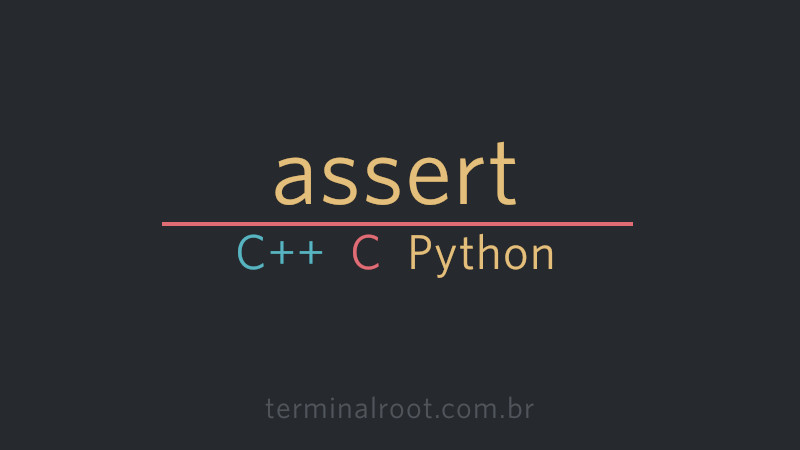
assert is a macro or function used to check conditions that should be true at runtime. If the condition fails, the program usually exits, and an error message is displayed. It is a useful tool for debugging, ensuring that certain conditions are met during development.
Using assert in C++ and C
In C++ and C, assert is a macro defined in the header <cassert> (C++) or <assert.h> (C). It is primarily used to validate assumptions at runtime and can be disabled in production code by defining the NDEBUG macro.
- Performance:
assertshould be used primarily for debugging. In production code, it is common to disable it to improve performance. -
Error Messages: Whenever possible, provide a descriptive message to facilitate debugging, especially in large projects.
- Exceptions: For critical validations, consider using exceptions (in C++ or Python) or manual checks that are never disabled.
Example in C++
#include <iostream>
#include <cassert>
int divide(int a, int b) {
assert(b != 0 && "Divisor cannot be zero!");
return a / b;
}
int main() {
int x = 10;
int y = 0;
std::cout << "Division: " << divide(x, y) << std::endl;
return 0; }In this example, assert(b != 0) ensures that the divisor is never zero. If y is zero, execution will stop with an error message.
Example in C
#include <stdio.h>
#include <assert.h>
int divide(int a, int b) {
assert(b != 0 && "Divisor cannot be zero!");
return a / b;
}
int main() {
int x = 10;
int y = 0;
printf("Division: %d\n", divide(x, y));
return 0;
}The operation is the same as in the C++ example, since assert in C is also used to check the validity of conditions at runtime.
Using assert in Python
In Python, assert is a native language statement that works in a similar way. If the condition is false, an AssertionError exception is thrown. As in C/C++, asserts can be disabled in the production environment using the -O flag (optimize, python -O script.py) when running the script.
def divide(a, b):
assert b != 0, "Divisor cannot be zero!"
return a / b
x = 10
y = 0
print("Division:", divide(x, y))In this example: assert b != 0 checks if b is non-zero. If y is zero, an AssertionError will be raised with the message “Divisor cannot be zero!”, if you do not use assert or if you use the parameter: -O as mentioned, the error output will be different.
There are many implementations of assert mainly in software that does unit testing, it is a powerful tool to avoid failures!




